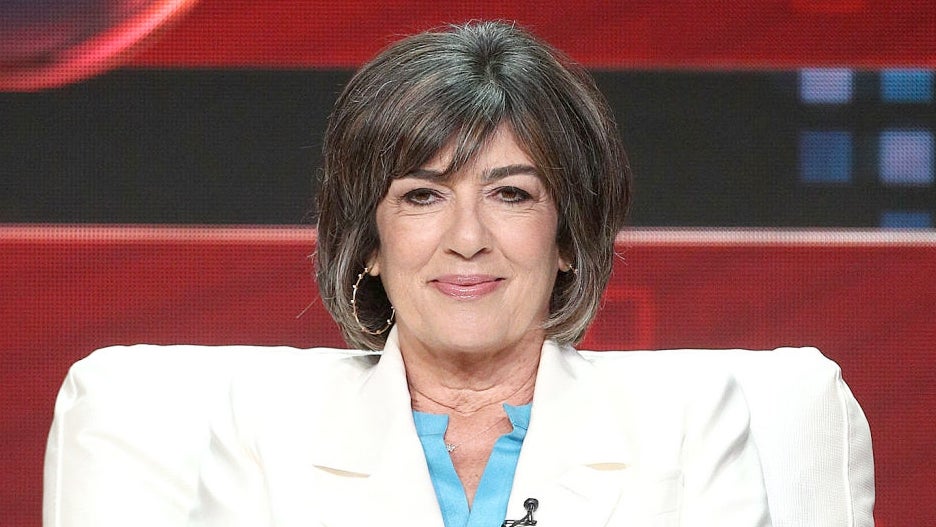
While delivering the commencement speech to graduating students Wednesday at Columbia University’s Graduate School of Journalism, Christiane Amanpour became the first CNN anchor to publicly criticize the network’s Donald Trump town hall.
In the speech, which was brought to wider attention by CNN media reporter Oliver Darcy in the latest Reliable Sources newsletter, Amanpour detailed a conversation she had about the event with CNN CEO Chris Licht, and then used her speech in part to rebut the primary arguments Licht and other CNN figures have used to defend the town hall from critics.
You can watch the entire speech above at the top of the page. Amanpour’s remarks begin about 40 minutes in.
Airing Wednesday, May 10, the town hall, moderated by former Tucker Carlson employee Kaitlan Collins, became a reputational disaster for CNN. Critics during and after noted how Trump was allowed to lie again and again with very little pushback on a variety of subjects. It was also noted that at one point Trump defamed E. Jean Carroll, the woman who had successfully sued him for sexual assault and defamation the day before — and he even insulted Collins to her face. In addition to the backlash, the event may also have contributed to a massive drop in viewership for CNN just two days later.
Amanpour set the scene early in her speech, telling graduates that journalism is, at its core, “a public service,” and that above all it is “about the truth.” Continuing on these concepts, she later said that the role of a journalist is “to expose the injustices, the inequities, the human rights abuses, and to give the voiceless their chance to be seen and heard, and especially to speak truth to power.”
“To hold the powerful accountable is not just a slogan, it is vital. And when we do it well, it makes a huge difference. And when we don’t, it makes an equal and opposite difference,” she said. “For better and for worse, I’ve always opted to speak out when staying silent might have been easier.”
This led her to bring up the town hall. She described how she recently spoke to Licht personally, which she described as a cordial and frank encounter. And then, Amanpour took a closer look at what then event’s defenders have said.
Those of you paying attention since last week of course know that CNN brass believes they did a public good. Many of CNN’s on-air talent have expressed the same sentiment, including primetime mainstay Anderson Cooper, who the day after the show insisted the town hall informed viewers of things they might not know about Trump — and even, essentially, said critics were being closed-minded.
Amanpour didn’t mention Cooper by name, but in her remarks she seemed to respond directly to him.
“The fact the American people voted 3 times against Trump and Trumpism — 2018, 2020, 2022 — also speaks volumes,” she said. “We’ve done our duty, we’ve told the story, we’ve put that in everybody’s awareness, and people have had the opportunity to make their choices, and they have done.”
“I still respectfully disagree with allowing Donald Trump to appear in that particular format,” she continued. “We know Trump and his tendencies. Everyone does. He just seizes the stage and dominates. No matter how much flack the moderator tries to aim at the incoming, it doesn’t often work. For me, I would have dropped the mic at ‘nasty person,’ but then that’s me.”
Amanpour next addressed graduating students, and described the town hall as, “a very well-timed, practical masterclass” on what could have been “done better.”
Noting that the her colleagues in the media “still haven’t learned how to cover Donald Trump,” she suggested, “Maybe we should revert back to the newspaper editors and TV chiefs of the 1950s, who in the end refused to allow McCarthyism onto their pages, unless his foul lies, his witch hunts and his rants reached the basic evidence level required in a court of law.”
“His influence gradually decreased with all but his fervent colleagues and cults,” she added. “So maybe less is more,” she suggested. “Maybe live is not always right.”
Later, Amanpour also offered advice to the graduates: “Be truthful, but not neutral. Bothsidesism is not always objectivity. It does not get you to the truth. Drawing false moral or factual equivalence is neither objective or truthful. Objectivity is our golden rule and it is in weighing all the sides and hearing all the evidence, but not rushing to equate them when there is no equating.”
“There is a 100% connection between a robust, independent, free and fair press and a functioning democracy and the advance of human rights and justice,” Amanpour added.
Watch the whole thing above.
















